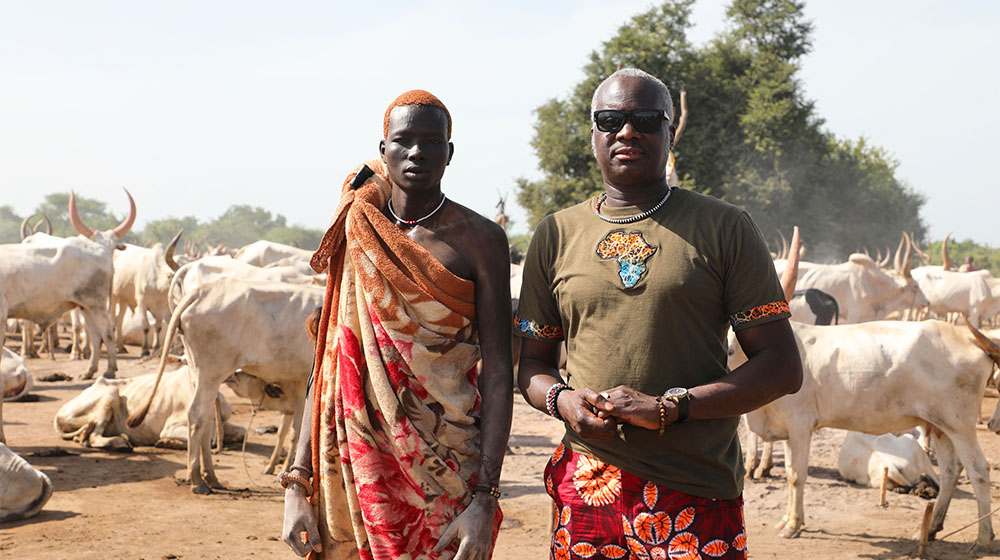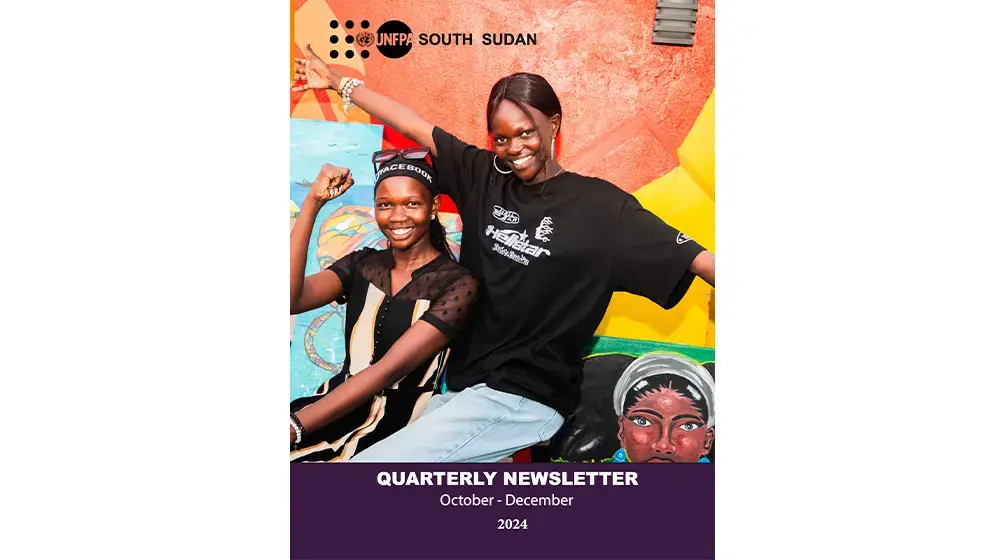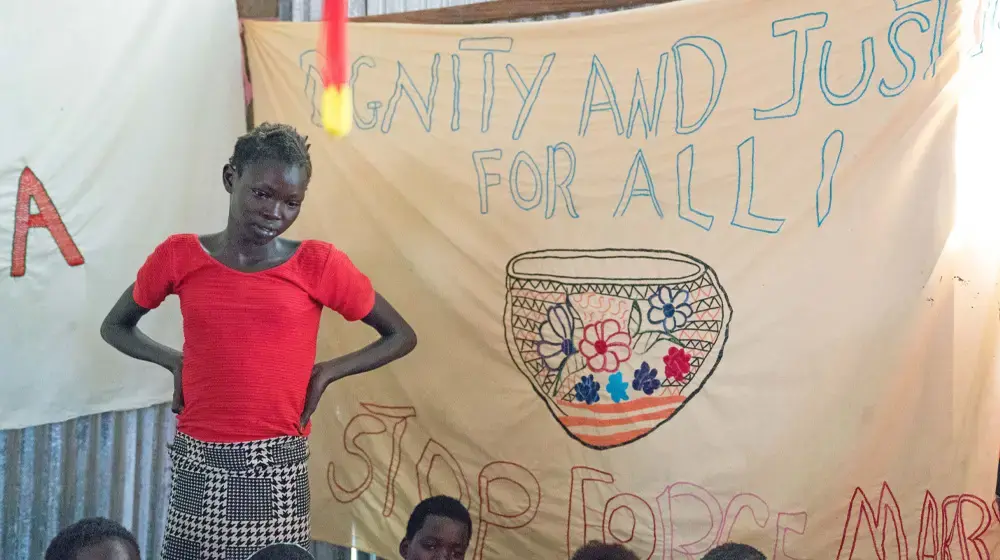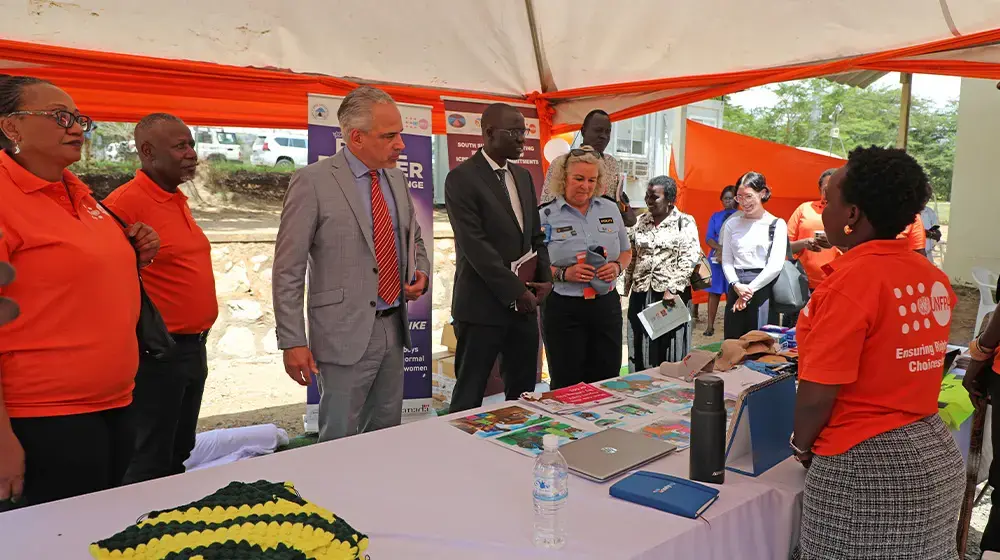Suzan is a young girl aged 14 who lives in Gbogoro cattle Camp in Terekeka. She had her first periods at the age of 11 and was aware of what was going on with her because her elder sister was always kept in one place every month during her menstruation period.
“I was afraid to tell my mother thinking it is a crime to menstruate. My mother called on my auntie and took me to another place where they dug a hole, and I was told to sit on for the next days until the blood stopped. I was afraid to die because of the flow but again isolation was a normal practice as I had heard of other girls do the same here in our community,” said Suzan. The use of sanitary pads is believed to cause infertility, virginal diseases and a risk to their cattle in case the cows swallow the pads.
Unlike other normal body processes, menstruation is linked with cultural meanings that affect the perceptions of young girls as well as the ways which the adults in communities around then
respond to their needs.
Adolescent girls are often uniformed and unprepared for menarche. Information is primarily obtained from mothers and other female family members in the communities who are not necessarily well equipped to fill the gaps in girls’ knowledge. To worsen the situation, girls are given information only the time in preparation of marriage which is also early and forced.
Multiple factors including religious and cultural barriers, social stigma, lack of Comprehensive Sexuality Education (CSE) and myths/misconceptions on family planning have contribute to the present state of sexual and reproductive health rights (SRHR) which remains a contentious landscape in South Sudan.
To achieve results of from isolation to accepting the use of reusable pads made from clothes, Shabab Le Shabab Health Alliance with a support from UNFPA spent fourteen days (14) and nights holding sessions with men separately and women and girls on issues of concern to each group. The tireless days in cattle camps among other things were intended to address, among others to break the silence of menstrual health, violence caused by cattle raiding that left women and girls suffering, and Gender Based Violence issues.

As commonly said, it takes a village to raise a child.
“Our father and cattle camp Chief accepted us to come and attend these sessions which I found very useful together with my mother and other girls. I learnt how to make pads out of clothes which will help me during my menstruation. I will not be isolated again” Akuol, Suzan’s sister shares her experience.
While engaging with various groups in the cattle camps the Teenage Girls and young women sessions covered training on basic skills on making re-usual pads using local materials, sensitisation on menstrual health hygiene and management, and preventions of other STIs among young girls. The sessions were conducted in an interactive manner and encouraged open discussions on menstrual hygiene myths and how to overcome barriers especially misconception due to culture. The girls in the cattle camp liked the approach as it helps to break the silence, fears and stigma around menstruations and STIs.





